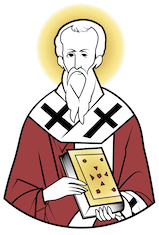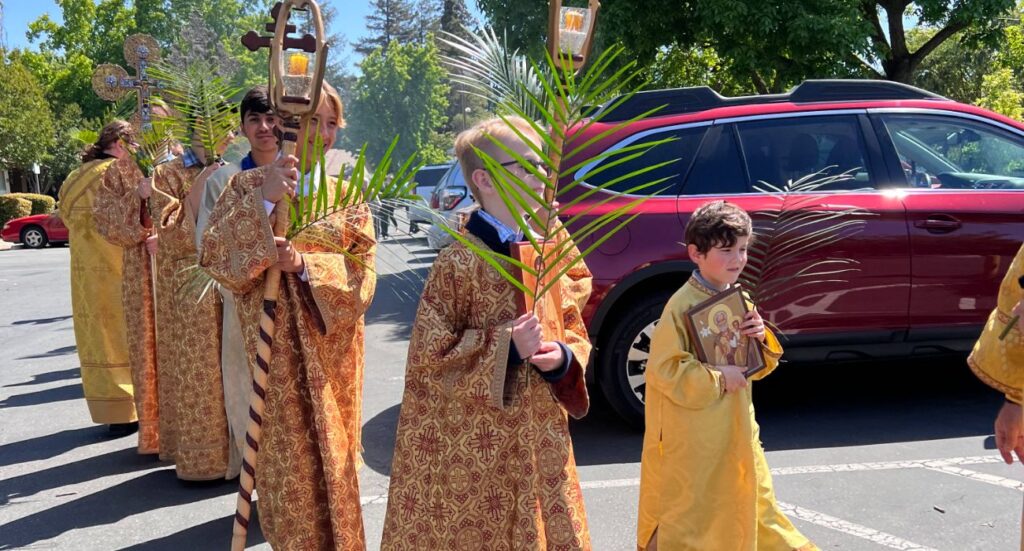The word “Orthodox” literally means “right worship” (from orthro meaning “right” or “correct” and doxos meaning “worship” or “glory”). Everything else in the life of the church flows from this, including teaching, discipleship, community, and even evangelism. If you have never attended an Orthodox church, you will find that the worship is probably unlike anything you have experienced. It has at least five characteristics:
It Is Ancient.
Our worship has its roots in the Old Testament temple and synagogue. The specific form we use on most Sunday mornings is the Divine Liturgy of St. John Chrysostom, written in the fourth century. While many hymns have been written since that time—and are still used today—the structure and form of the service has not changed for centuries. It is truly “that old time religion.”
It Is Liturgical.
The word “liturgy” has a negative connotation among many Christians. They associate it with something formal and lifeless. But the word “liturgy” literally means “the work of the people.” At its best, liturgy is like a choreographed dance. The people of God, led by the priests and deacons, perform together—reciting prayers, reading Scripture, and singing hymns. They act as one or an audience of One, lifting their voice in unison to Father, Son, and Holy Spirit.
It Is Whole.
We believe that the Church is the fullness of Christ’s body on earth. As a term, “catholicity” means “fullness or perfection, wholeness.” Only God is perfect wholeness, the fullness of being. God makes the Church to be catholic by its participation in his full, divine life. Worship—particularly sacramental worship—is the primary means by which the church manifests its catholicity and participates in the divine life.
It is mystical.
In the Lord’s Prayer, we pray that God’s will would be “done on earth as it is in heaven.” This begins with worship. We want our worship on earth to reflect the worship done in heaven as described in the Book of Revelation. This kind of worship is like a living icon: everything points to a heavenly reality: the vestments, icons, candles, incense, and prayers all manifest Christ’s presence in our midst.
It is Eucharistic.
The heart of our worship is Holy Communion. We observe it every single Sunday and at other times as well. It is the highlight of our worship. In the Divine Liturgy, we offer to God our gifts of bread and wine. In a mystery, He changes them into the Body and Blood of Christ and returns them to us for our spiritual nourishment and sanctification. In the words of St. Ignatius of Antioch, holy communion is “the medicine of immortality.”


